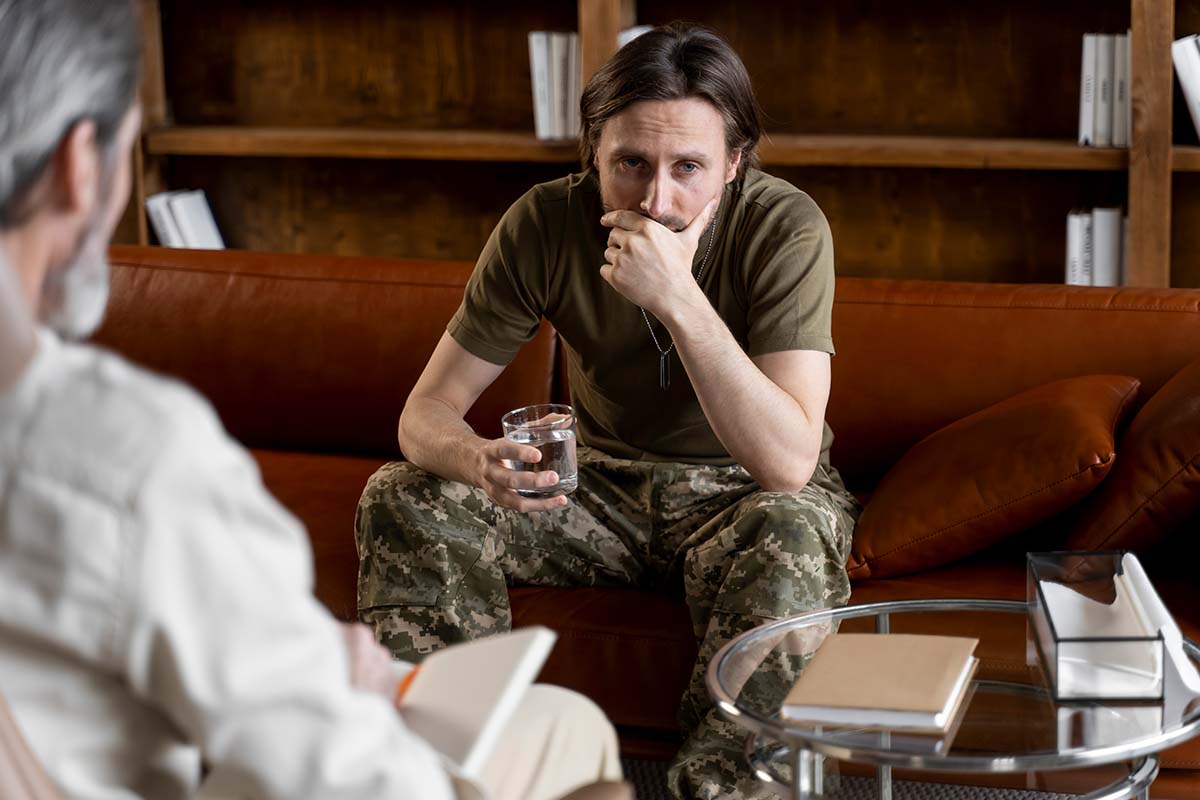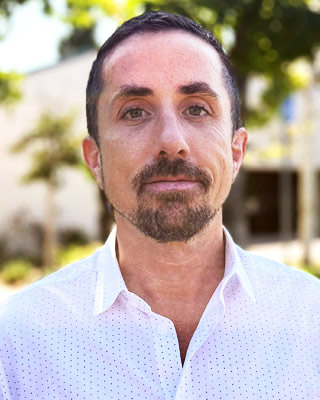Key Takeaways
- Veterans face higher risks of depression and anxiety due to trauma, combat, and transition stress.
- Integrated therapy and treatment that address both addiction and mental health are most effective when treating veterans for anxiety and/or depression.
- 12 South Recovery offers veteran-focused care combining therapy, holistic methods, and family support.
Carrying the Weight After Service
Military service demands strength, resilience, and sacrifice. For many veterans, the challenges don’t end when service concludes. Depression and anxiety often follow them into civilian life, especially during addiction recovery. The U.S. National Library of Medicine highlights that veterans face higher risks of co-occurring mental health disorders, with substance use frequently linked to trauma and emotional strain.

Why Veterans Face Higher Rates of Depression and Anxiety
Veterans are at an increased risk of depression and anxiety compared to civilians. The reasons are layered:
- Combat exposure: Witnessing violence or life-threatening situations leaves emotional scars.
- Military sexual trauma: Both men and women can experience assault or harassment while serving.
- Transition stress: Returning to civilian life brings loss of identity, career uncertainty, and strained relationships.
- Isolation: Many veterans feel misunderstood outside military culture, worsening loneliness and sadness.
These factors create an environment where mental health symptoms can thrive. Without effective treatment, they often push veterans toward unhealthy coping, including substance use.
How Military Trauma Impacts Veterans’ Mental Health
Trauma from military service has a direct impact on long-term mental health. Exposure to combat or witnessing death can cause ongoing intrusive thoughts, hypervigilance, and sleep disturbances. These symptoms overlap with depression and anxiety, making life feel unstable.
Veterans often experience guilt for surviving when others didn’t, or shame about events they couldn’t control. Military sexual trauma adds another painful layer, often leading to avoidance, mistrust, and deeper emotional wounds.
When trauma is left untreated, it increases vulnerability to PTSD and addiction, as veterans search for ways to numb pain. Effective therapy and treatment focus on processing trauma safely while teaching veterans new coping skills to manage daily stressors.
The Connection Between Veterans, PTSD, and Addiction Recovery
PTSD, depression, and anxiety frequently intersect with addiction recovery among veterans. Substance use may begin as a way to dull intrusive memories, improve sleep, or ease panic. Over time, this creates dependency that complicates mental health even further.
The cycle is clear: trauma leads to emotional distress, substances provide temporary relief, and addiction deepens the depression and anxiety already present. Breaking this cycle requires integrated treatment that addresses both mental health disorders and addiction together.
At 12 South Recovery, we combine trauma therapy, CBT, DBT, and holistic approaches to give veterans practical tools for stabilization and long-term recovery.
Signs of Depression and Anxiety in Veterans During Recovery
Recognizing depression and anxiety in veterans going through addiction recovery is critical. Common signs include:
- Persistent sadness or irritability.
- Difficulty sleeping or frequent nightmares.
- Avoiding family, friends, or once-enjoyed activities.
- Sudden changes in appetite or energy.
- Restlessness, panic attacks, or trouble focusing.
These symptoms can appear gradually or suddenly during recovery. Veterans may also feel hopeless about their future or struggle to stay engaged in treatment without additional support.
Treatment Options for Veterans with Depression and Anxiety
Effective treatment for veterans with depression and anxiety during addiction recovery requires an integrated approach:
- Therapy: Individual therapy, group therapy, and trauma-focused counseling address both emotional health and addiction.
- Medication support: When appropriate, antidepressants or anti-anxiety medications help stabilize mood.
- Dual diagnosis care: Treating both mental health and addiction at the same time prevents relapse.
- Continuing care: Ongoing counseling and support groups strengthen progress beyond residential treatment.
At 12 South Recovery, every veteran receives a personalized treatment plan that blends evidence-based care with community support.
Therapies That Help Veterans in Addiction Recovery
Therapies designed for veterans in addiction recovery include:
- Cognitive Behavioral Therapy (CBT): Reshapes negative thought patterns.
- Dialectical Behavior Therapy (DBT): Builds coping skills for strong emotions.
- EMDR (Eye Movement Desensitization and Reprocessing): Processes trauma memories safely.
- Family therapy: Rebuilds trust and strengthens communication at home.
These therapies create space for veterans to confront trauma, reduce anxiety, and manage depressive symptoms while working toward sobriety.
The Role of Family Support for Veterans in Recovery
Family support is an important part of recovery for veterans. Veterans with families who are engaged in their treatment process are substantially more likely to stay engaged in treatment, manage their symptoms, and prevent relapse. Family therapy can also provide an opportunity to improve communication, allow the family to share their frustrations, and overall create a better support system for the veteran.
At 12 South Recovery, families are strongly encouraged to take part in therapy sessions together and to work to rebuild their mutual strength and resilience and to be united as a family. This way recovery can be a collective process, rather a process of recovery and healing for the entire family.
Holistic Approaches for Veterans Coping with Depression and Anxiety
Holistic approaches also offer more options for wellbeing in addition to conventional therapies. In the holistic spectrum, veterans have access to;
- Mindfulness and meditation for eliminating stress
- Yoga and exercise for physical health, which assists maintaining moods
- Art and music therapy for self-discovery and emotional release
- Nutrition counselling for brain and body health
Holistic approaches provide additional pathways to help with the recovery of depression and anxiety and complement clinical care.
Veteran Resources for Mental Health and Addiction Recovery
Veterans in Lake Forest and beyond have access to valuable resources that support recovery, including:
- VA programs offer therapy, support groups, and medication management.
- Community-based organizations providing peer support and veteran-focused services.
- 12 South Recovery, which bridges professional treatment with community care to help veterans feel supported every step of the way.
How 12 South Recovery Supports Veterans with Depression and Anxiety
At 12 South Recovery, we provide a safe and structured environment for veterans facing depression, anxiety, and addiction recovery. Our programs include:
- Detox and residential care for stabilization.
- Partial hospitalization (PHP) and IOP for flexible, ongoing support.
- Therapies include CBT, DBT, EMDR, trauma therapy, and family therapy.
- Holistic care that nurtures emotional, physical, and spiritual wellness.
By addressing the root causes of trauma while building coping skills, we help veterans reclaim control and move forward with confidence.
Healing and Hope for Veterans Starts Here
At 12 South Recovery, we guide veterans through depression, anxiety, and addiction recovery with proven therapies and supportive care. Let our team help you build strength and hope for the future. Call 12 South Recovery Today!































